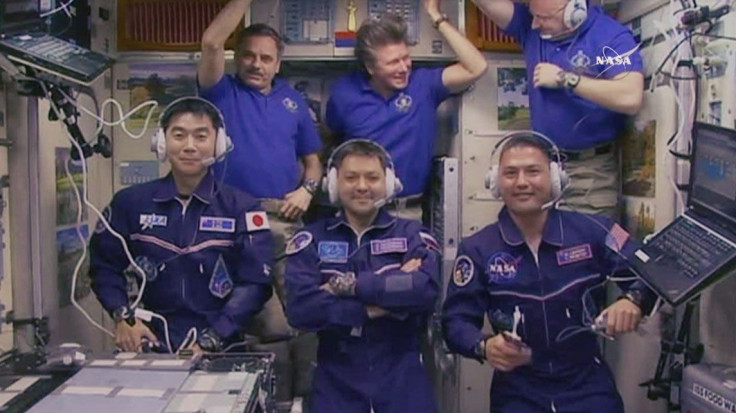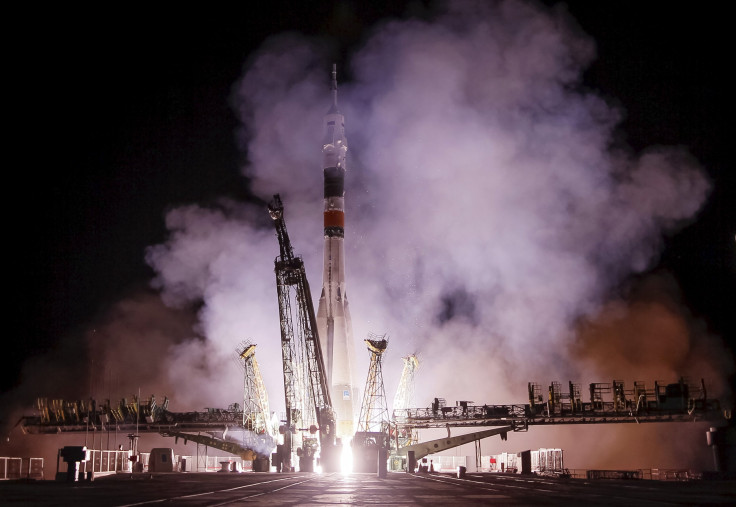Russian Soyuz Rocket Successfully Takes Astronauts To ISS, New Crew Joins Expedition 44

Three new astronauts joined their Expedition 44 crewmates at the International Space Station (ISS) on Thursday, after successfully completing their journey to the orbiting lab aboard a Russian Soyuz spacecraft. The rocket carrying the astronauts from the United States, Russia and Japan docked with the ISS late Wednesday.
According to NASA, the hatches between the Soyuz TMA-17M spacecraft and the space station opened at 12:56 a.m. EDT. The spacecraft was launched toward the orbiting lab on Wednesday after a recent Russian rocket failure delayed the mission for two months.
“The Soyuz TMA-17M vehicle docked to the International Space Station at 10:45 p.m. EDT, over the ocean near Ecuador,” the U.S. space agency said in a statement early Thursday. The three astronauts aboard the spacecraft were Kjell Lindgren of NASA, Oleg Kononenko of the Russian Federal Space Agency (Roscosmos) and Kimiya Yui of the Japan Aerospace Exploration Agency (JAXA). The trio joined Russia's Gennady Padalka and Mikhail Kornienko, and NASA's Scott Kelly.
According to NASA, some of the cargo flown aboard the Soyuz will be used in research investigations that are either ongoing or planned aboard the space station. The astronauts will use biological sample kits delivered by the spacecraft to obtain samples of blood, saliva or urine.
“The ongoing collection of biological samples from crew members will help scientists determine if immune system impairment caused by spaceflight increases the possibility for infection or poses a significant health risk during life aboard the space station,” NASA said in another statement on Wednesday.
Lindgren, Kononenko and Yui will remain aboard the station until late December, while Kelly and Kornienko, who have been aboard since March 27, will return to Earth in March 2016. Padalka, who also has been aboard since March 27, will return to Earth in September, according to NASA.

The Soyuz spacecraft was launched on schedule from the Baikonur Cosmodrome in Kazakhstan to the ISS at 5:02 p.m. EDT on Wednesday. The launch was delayed by nearly two months after an unmanned Russian cargo spacecraft failed to deliver supplies to the ISS crew in April, raising concerns about Russian rockets.
The Progress 59 cargo spacecraft reportedly went out of control in late April, and subsequently burnt up a week later as it was re-entering the Earth’s atmosphere.
Earlier this month, a Russian Soyuz-U rocket successfully launched an unmanned cargo spacecraft to the ISS, carrying over 6,100 pounds of food, fuel and supplies.
© Copyright IBTimes 2024. All rights reserved.






















